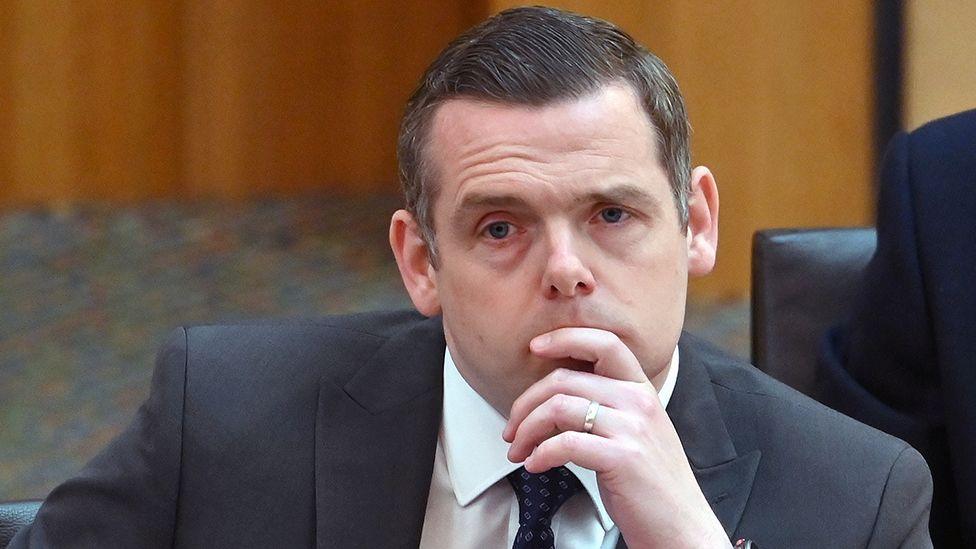Why new Scottish Tory leader has his work cut out
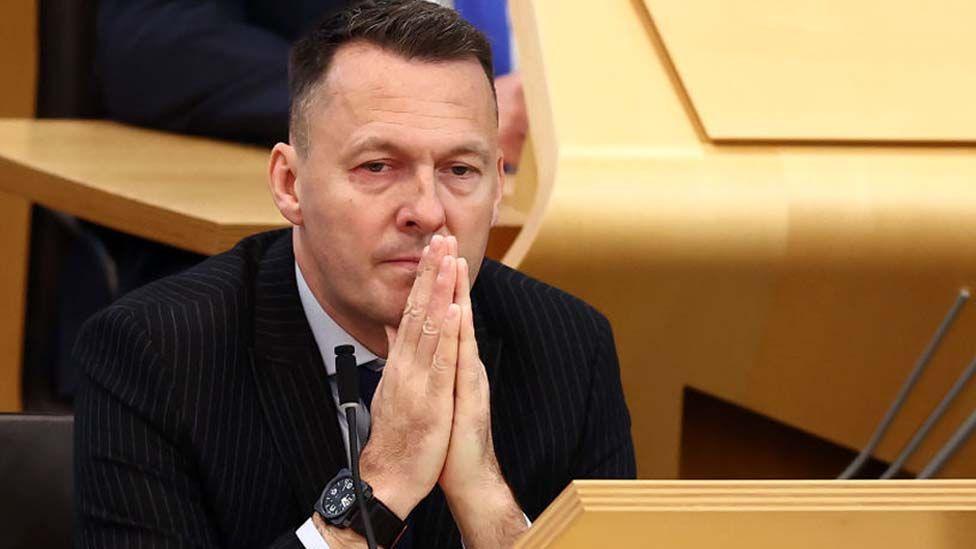
- Published
Politicians rarely get handed the reins of a party when things are looking rosy, but the new leader of the Scottish Conservatives really has his work cut out.
Russell Findlay is taking over from Douglas Ross after a leadership contest that began in early June.
The starting gun was informally fired when Ross announced his plans to stand down during the UK general election campaign.
He defeated long-serving MSP Murdo Fraser and former deputy leader Meghan Gallacher in a ballot of party members.
The contest was, to put it mildly, ill-tempered.
Six MSPs began the race, before Brian Whittle, Jamie Greene and Liam Kerr pulled out and went on to back Murdo Fraser.
Russell Findlay elected as new Scottish Conservative leader
- Published27 September 2024
Who is new Scottish Conservative leader Russell Findlay?
- Published27 September 2024
Privately, it’s not difficult to get Scottish Conservative politicians to tell you why they believe one candidate or another would be a disaster for the party.
And that speaks volumes about a contest that’s descended into bitterness.
The acrimony arguably peaked last month when Megan Gallacher resigned as deputy leader of the party.
She said this was prompted by “concerning allegations” that Douglas Ross had previously expressed a preference for Russell Findlay to succeed him.
The very same day four other candidates put their names to a joint statement (which Findlay was not asked to sign) questioning the “transparency and fairness” of the contest.
The relationship between Gallacher and one of the party’s top MPs – the Shadow Scottish Secretary John Lamont – has deteriorated particularly badly.
She has made an official complaint to the party about his conduct.
Lamont’s threatened legal action, accusing the former deputy leader of claiming that he phoned members to tell them she was due to pull out of the contest.
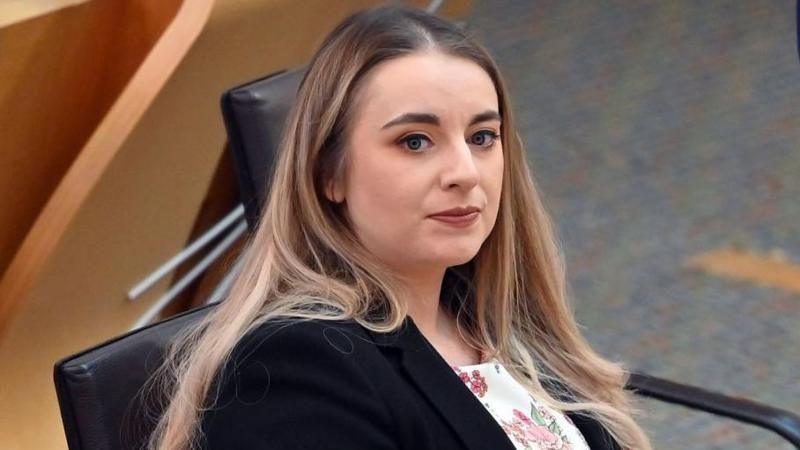
Meghan Gallacher resigned as deputy leader of the party last month
And there’s been shots fired between candidates.
During an STV debate, Murdo Fraser accused Russell Findlay of being the “establishment candidate”. Russell Findlay rejected this as “fanciful”.
I could spend most of this article outlining other instances of infighting.
The party is not in a happy place. This contest has seen them divide into camps, and the first task of the new leader will be to try and bring the team back together.
That’s not the only internal problem.
As part of this leadership saga it’s emerged that the Scottish Conservatives only have around 7,000 members. For context, that’s fewer than the Scottish Greens (who have far fewer MSPs).
Come election time, these are the door-knockers, pavement-pounders and leaflet-deliverers that serve as the lifeblood of any political movement.
The new leader will want to build on this base. But how do you convince more people to sign up and pay their dues each month? That’s the real challenge.
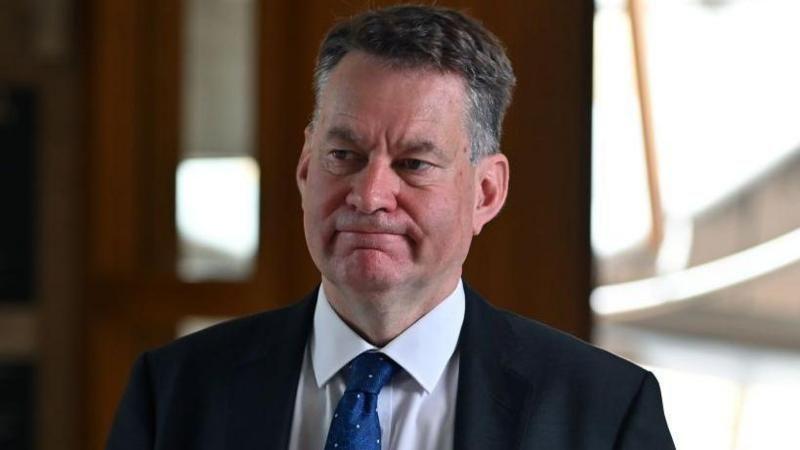
Murdo Fraser has the backing of three previous runners in the contest
There are other issues that will need immediate attention.
The electoral prospects for the Scottish Conservatives are looking fairly grim at the moment.
At the recent general election they only lost one seat, but their vote share slumped to below 13%.
They may well be losing what was (more or less) a monopoly on the right of Scottish politics.
Nigel Farage’s Reform Party overtook them in every Glasgow seat at that election, and probably cost them the key seat of Aberdeenshire North and Moray East
The electoral landscape isn’t laid out in the Scottish Conservative’s favour at the moment.
The issue of a second independence referendum feels further down the agenda for the time being. This poses another problem.
Their staunch opposition to re-visiting the independence question proved a vote winner for them, helping them to leapfrog Labour and become the biggest opposition party at Holyrood.
But with Labour looking resurgent, it feels likely that the Conservatives will be slipping backwards at the 2026 Scottish election.
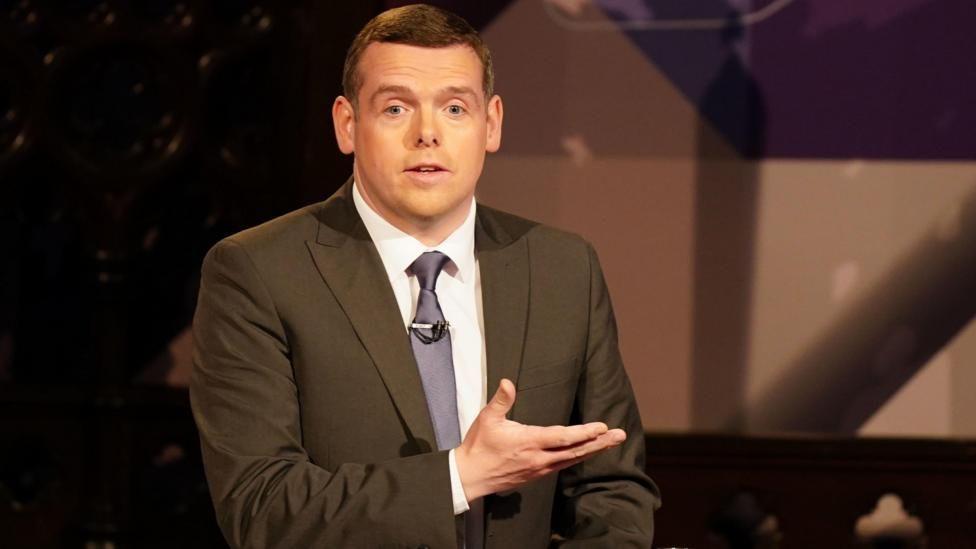
Douglas Ross revealed he would stand down during the election campaign
As if all of this wasn’t enough, Findlay has a packed diary.
He will meet the King and Queen on Saturday at an event to mark 25 years of the Scottish Parliament, and will be expected to make a speech at the upcoming UK Conservative conference in Birmingham.
For many in the Scottish Conservatives the end of this contest can’t come soon enough.
All the candidates seem to want to put a summer of squabbling, bickering and anonymous briefings behind them.
But Findlay may swiftly find out that the long trek to the leadership was nothing compared to the slog towards the 2026 election.
Related topics
- Published21 August 2024
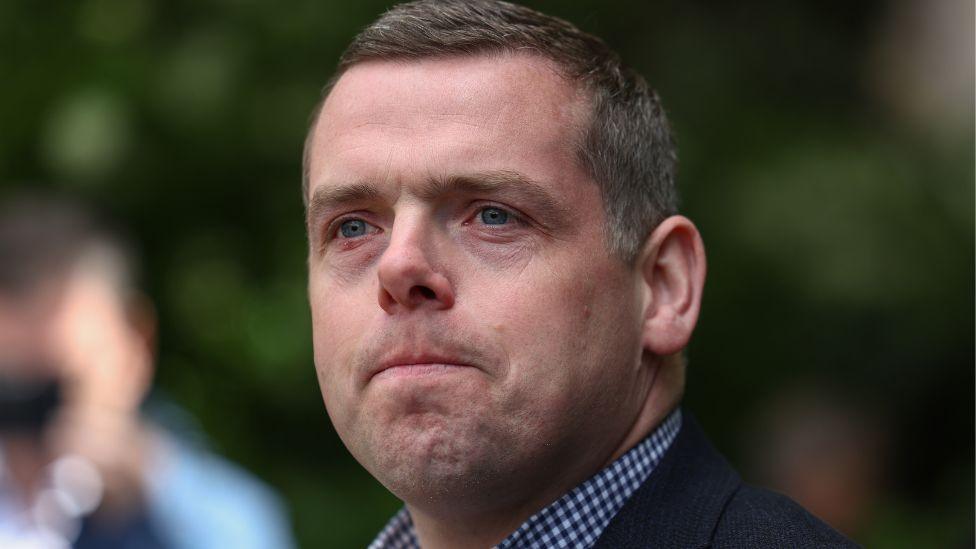
- Published1 August 2024
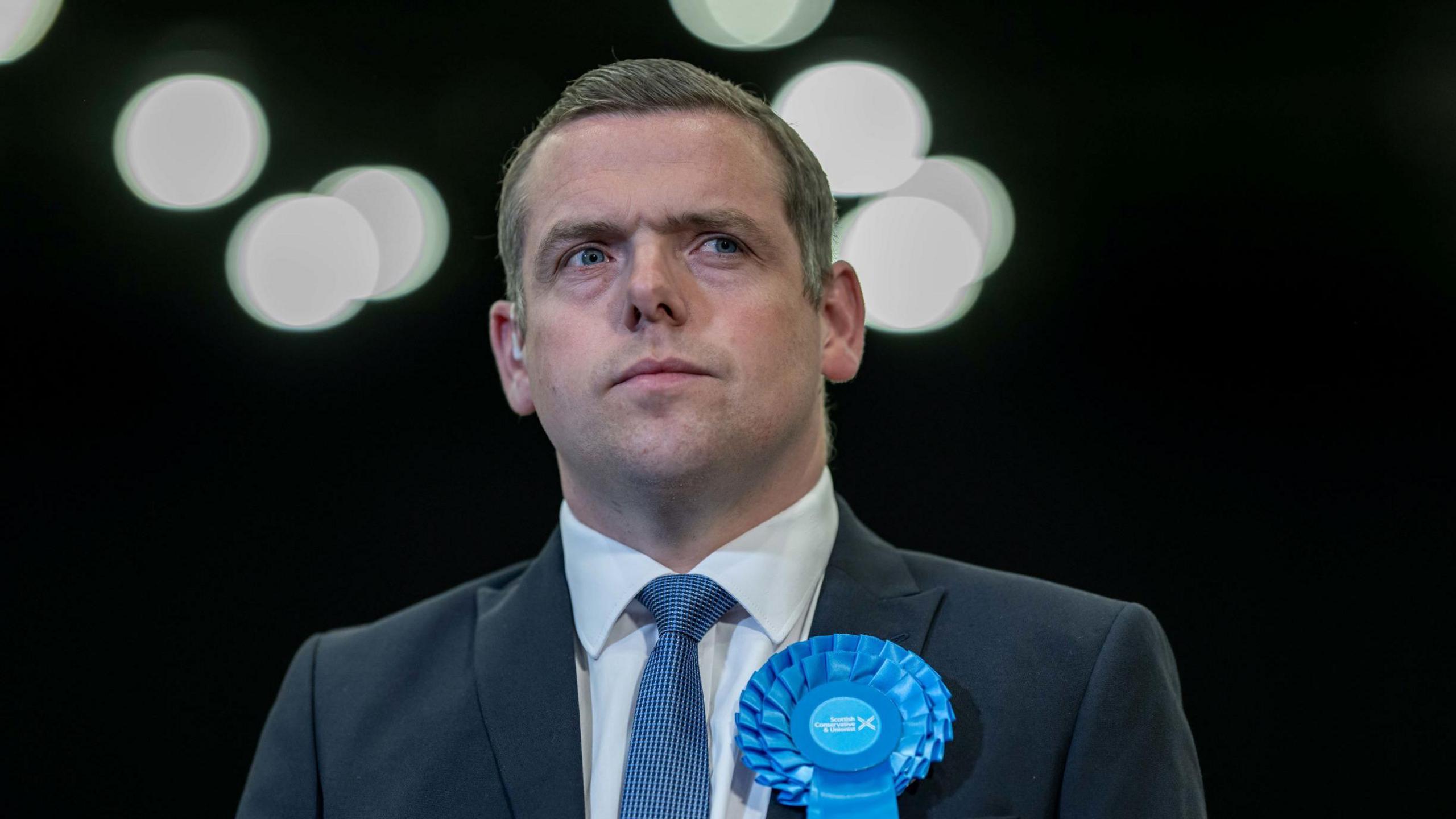
- Published10 June 2024
